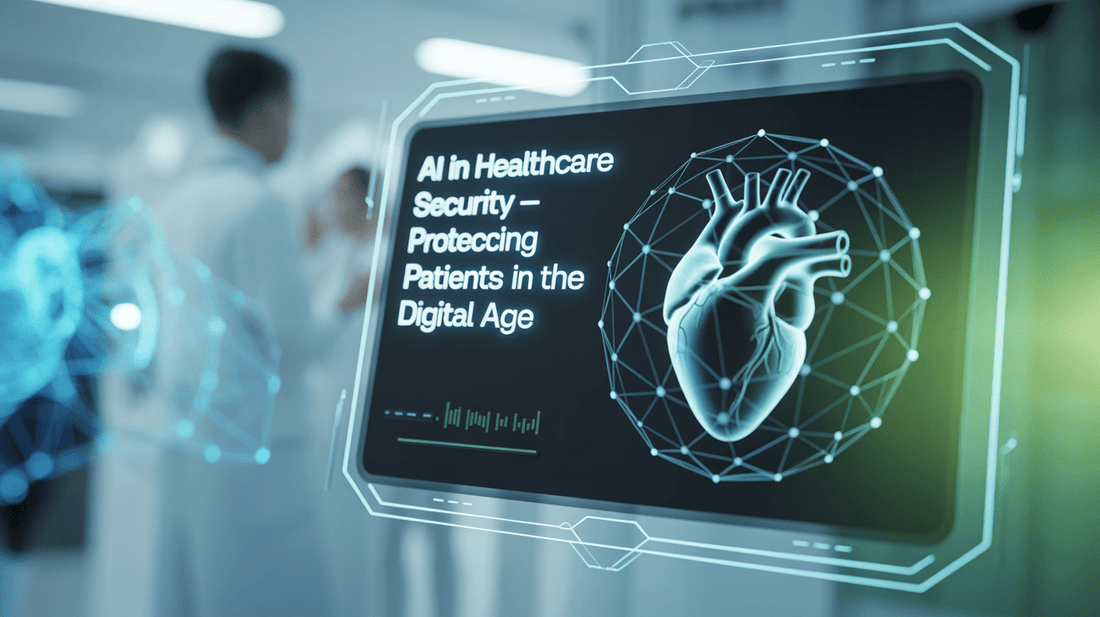
AI in Healthcare Security — Protecting Patients in the Digital Age
AI in Healthcare Security — Protecting Patients in the Digital Age
Introduction: When Health Meets Hackers
Healthcare is no longer just about doctors and nurses — it’s about data. From electronic health records (EHRs) to wearable devices, every heartbeat and blood test is now digital. But this digital transformation comes with a shadow: cyber threats.
In 2023 alone, the U.S. Department of Health and Human Services recorded over 88 million patient records exposed due to cyberattacks. For patients, that means more than stolen numbers — it means compromised trust. For hospitals, it’s reputational damage and millions in fines.
The question is no longer if healthcare will be attacked, but how prepared it is. And this is where Artificial Intelligence (AI) becomes not just useful, but essential.
The Cybersecurity Challenge in Healthcare
Why is healthcare such a prime target?
- Data Value – A single medical record can be worth 10–50 times more than a credit card on the black market.
- Legacy Systems – Hospitals often run on outdated software that can’t keep up with modern threats.
- High Stakes – Attacks don’t just lock files; they can disrupt life-saving procedures.
Traditional IT teams are stretched thin. They rely on manual monitoring, firewalls, and patching — but attackers evolve faster than humans can respond.
How AI Transforms Healthcare Security
🔍 1. Threat Detection in Real Time
AI algorithms can scan billions of data points across networks, detecting anomalies that would be invisible to humans.
Example: If an employee account suddenly starts downloading hundreds of patient records at midnight, AI can flag and block it instantly.
💡 Connection: This approach mirrors what I discussed in AI-Powered Content Creation — using AI to scale beyond human limits. In security, scale means survival.
🧠 2. Predictive Risk Analysis
Machine learning models can predict which systems are most vulnerable based on usage patterns and historical breaches.
- Hospitals can patch proactively rather than reacting after damage.
🤝 3. Protecting Patient Privacy
AI can automatically anonymize sensitive records for research use while ensuring compliance with HIPAA (US) or GDPR (EU).
⚠️ 4. Fighting Ransomware
Some AI tools (like Darktrace and CrowdStrike) specialize in identifying ransomware signatures before they lock down entire hospital networks.
Case Study: The Cleveland Clinic
In 2024, the Cleveland Clinic integrated AI threat detection into its EHR system. Within weeks, it stopped an attempted phishing attack that had bypassed traditional email filters. Estimated loss prevented: $12 million in downtime and damages.
Challenges and Ethical Questions
- False Positives: Overzealous AI can block legitimate users, disrupting care.
- Bias in Security Models: If training data comes from one country or system type, it might miss global threats.
- Human Oversight: As with Ethical AI Agents, AI in healthcare must remain supervised by humans.
The Future: Autonomous Cyber Defenses
By 2030, experts predict that most hospitals will rely on autonomous AI systems to handle 90% of cyber incidents, freeing IT staff for complex strategy.
For healthcare leaders, the call to action is clear: AI is no longer optional — it’s part of patient safety.
Conclusion
Protecting data is protecting patients. As healthcare becomes more digital, cybersecurity powered by AI is the stethoscope of the future: invisible, constant, life-saving.